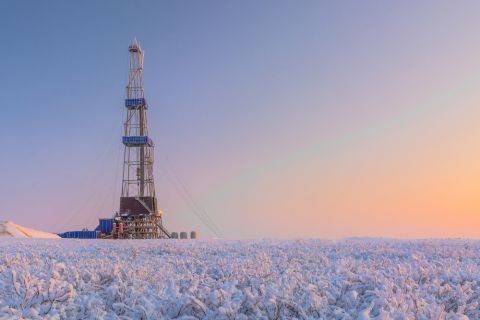The U.S. Energy Department said on Feb. 28 it is offering up to 6 MMbbl of sweet crude oil from the national emergency reserve in a sale mandated by previous laws to raise funds to modernize the facility.
Laws passed by Congress in previous years require the department to hold sales to pay for improvements to the Strategic Petroleum Reserve which is held in caverns on the coast of Texas and Louisiana.
The delivery period for the oil will be from May 1 to May 14 for oil from the reserve's West Hackberry and Big Hill site, and from May 1 to May 31 from the Bryan Mound site. Offers for the oil must be received by March 13, the department said.
While global oil prices have been rising as the oil production group OPEC and Russia work together to cut supplies, the sale did not appear to be aimed at balancing markets. U.S. Energy Secretary Rick Perry, who has said price impacts from tapping the reserve for supply balance are often temporary, did not mention the sale in a press conference earlier on Feb. 28.
Recommended Reading
Venture Global Gets FERC Nod to Process Gas for LNG
2024-04-23 - Venture Global’s massive export terminal will change natural gas flows across the Gulf of Mexico but its Plaquemines LNG export terminal may still be years away from delivering LNG to long-term customers.
US EPA Expected to Drop Hydrogen from Power Plant Rule, Sources Say
2024-04-22 - The move reflects skepticism within the U.S. government that the technology will develop quickly enough to become a significant tool to decarbonize the electricity industry.
Exclusive: ‘Regulatory Tsunami’ a Top Priority for American Producers, Says AXPC’s Bradbury
2024-04-22 - Regulatory considerations have significant implications for how oil and gas companies evaluate risk, and it’s a top priority for American energy producers right now, said American Exploration & Production Council CEO Anne Bradbury at CERAWeek by S&P Global.
Biden Administration Criticized for Limits to Arctic Oil, Gas Drilling
2024-04-19 - The Bureau of Land Management is limiting new oil and gas leasing in the Arctic and also shut down a road proposal for industrial mining purposes.
Exclusive: The Politics, Realities and Benefits of Natural Gas
2024-04-19 - Replacing just 5% of coal-fired power plants with U.S. LNG — even at average methane and greenhouse-gas emissions intensity — could reduce energy sector emissions by 30% globally, says Chris Treanor, PAGE Coalition executive director.




